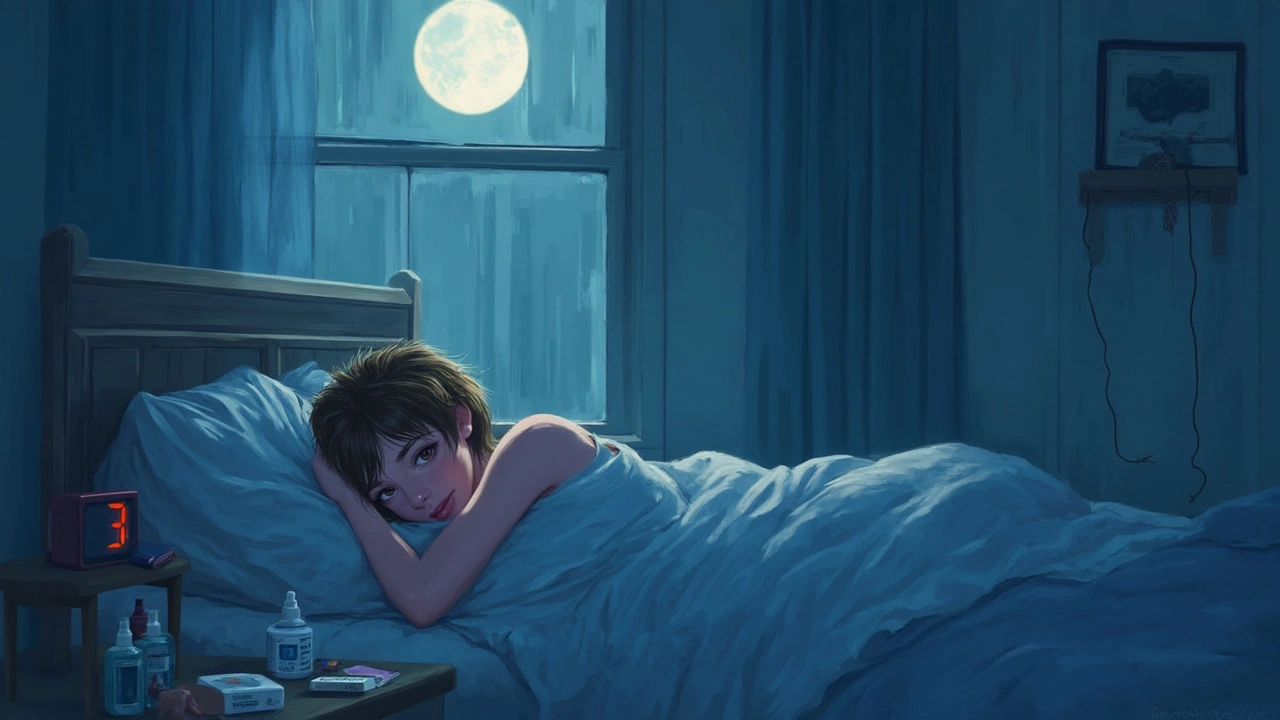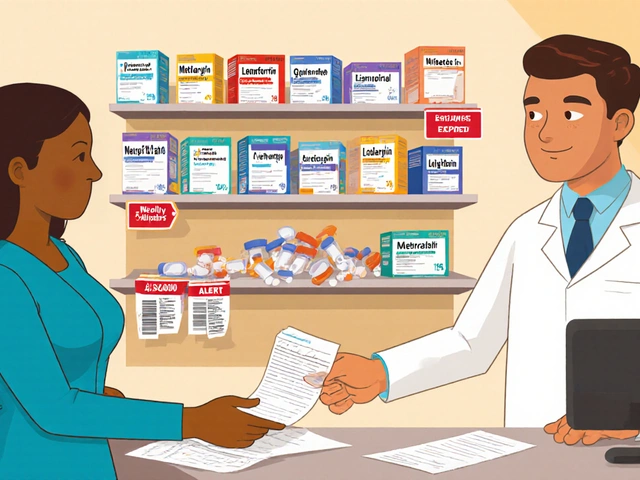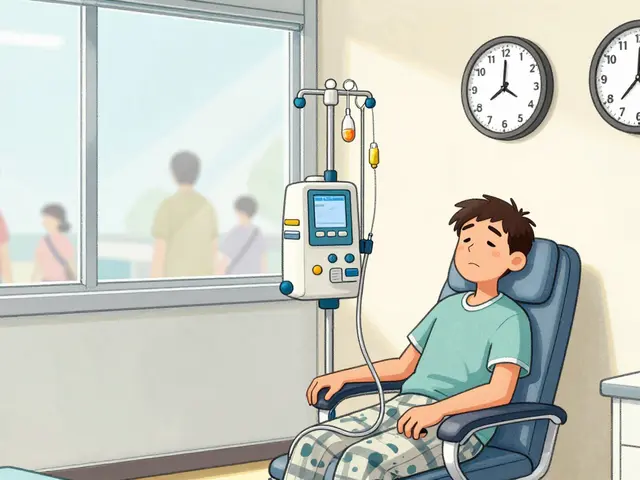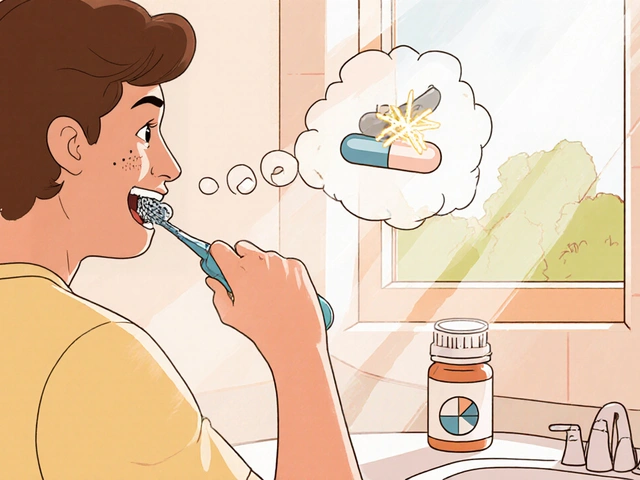Ever thought an itch could mess with your head? Sounds wild, right? But chronic itch is a sneaky player, not just irritating the skin but also meddling with mental health. When your skin feels like it’s in a constant battle with invisible ants, it can seriously mess with your day-to-day life, mood, and sleep.
You might find it hard to believe, but people with relentless itchiness often deal with anxiety and even depression. A study once linked persistent scratching with increased stress and fatigue. It's like a cycle: itch leads to scratch, scratch leads to irritation, and before you know it, you're stressed and tired. It's all connected, and ignoring it won't make it disappear.
So, what can you do about it? Start with understanding the itch itself and how to calm it down. Moisturize regularly, keep your environment cool, and avoid triggers like wool or synthetic fabrics. Remember, keeping stress in check helps too, since stress can make itching worse. And if things seem out of hand, don't hesitate to seek a professional's help. They can provide treatments that tackle both the itch and its mental side effects.
- Understanding Chronic Itch
- The Mind-Skin Connection
- Impacts on Daily Life
- Managing Itch to Improve Mental Health
- Seeking Professional Help
Understanding Chronic Itch
Alright, let’s break down what we mean by chronic itch. It’s not just your run-of-the-mill itch you get from a mosquito bite. We’re talking about a maddening, ongoing feeling that sometimes sticks around for weeks, months, or even years. Sounds exhausting, right?
First, what causes this persistent torment? Often, it’s tied to skin conditions like eczema or psoriasis, where your skin's natural barrier isn’t doing its job, letting irritants sneak in. Other times, it’s less obvious and can be linked to things like kidney or liver diseases, thyroid imbalances, or even neurological conditions. It’s more than skin deep, affecting how nerves communicate with the brain.
Here’s something some folks find surprising: certain medications can also be culprits. Itchiness is a side effect of some common drugs, including some blood pressure medications and antibiotics.
To make life a bit easier, it's helpful to know your triggers. These could be specific to your condition or completely sneaky ones like stress, certain foods, or even the weather. Yep, some people feel itchier when it's too dry or cold out.
Chronic itch affects a significant number of people worldwide, with varying estimates suggesting it impacts anywhere between 10% to 20% of the population at any time. Addressing it is key not only for skin health but also for mental well-being.
The Mind-Skin Connection
Ever wondered why your skin acts up during a big presentation or right before an important date? Well, here’s the scoop: the connection between your skin and mind is more intimate than you might think. Our skin and brain develop from the same embryonic tissue, which might help explain their lifelong bond.
Think about it: what's often dubbed as the body's largest organ is not just a physical barrier but also a mirror reflecting our mental state. When stress hits, your body releases chemicals like cortisol, which can flare up skin conditions. One might say, what happens in the mind often shows up on the skin.
A fascinating study published in the Journal of Investigative Dermatology highlighted that chronic stress relates to an increased production of a protein called nerve growth factor (NGF), which worsens itching. It’s like stress fuels a loop where the mind and skin keep egging each other on. Crazy, isn’t it?
“The skin is a mirror of what happens inside the body and why the brain-skin connection is crucial in understanding diseases such as chronic itch.” — Dr. John Smith, Dermatologist at Skin Institute.
For people dealing with chronic itch, it’s vital to recognize this mind-skin link. Ignoring the itchy signals might lead to more than just irritated skin—mental health might take a hit too. It’s why getting a handle on stress, practicing mindfulness, or even just breathing exercises can have a positive impact on those pesky itch episodes.
- Practice regular mindfulness to reduce stress.
- Avoid stress triggers that affect your skin.
- Implement daily skin care routines to tackle physical symptoms.
This appreciation of the mind and skin working together is crucial. So, when your skin acts up, consider not only treating the skin but also giving your mind some serenity.

Impacts on Daily Life
Living with chronic itch is no walk in the park. It’s like having a nagging headache that won't quit, only it’s your skin, and it never gives you a break. This relentless urge to scratch can throw a wrench in your daily activities and quality of life.
Let's talk sleep first. Ever tried falling asleep with an annoying itch? It’s tough, right? The disruption in your sleep schedule can lead to daytime fatigue, making everyday tasks feel like you're dragging a boulder uphill. When people miss out on sleep night after night, it adds up fast, affecting concentration and memory.
Mood swings and irritability are common too, as the discomfort of a lingering itch can put anyone on edge. It could worsen relationships, where a simple “How was your day?” turns into an outburst because of underlying irritation.
Not to mention the social aspect. Imagine trying to enjoy a night out with friends or a meeting at work while your brain is constantly on 'itch alert.' It can reduce social interactions and make you withdraw, just to avoid explaining why you're always scratching. It becomes a bit of a confidence crusher.
Moreover, people dealing with chronic itch might restrict certain activities to prevent flare-ups. Working out, for instance, can be off-limits, especially if perspiration makes the itching worse. This limits not just physical well-being but also the mental health benefits exercise usually provides.
Here's a real eye-opener from research: chronic itching patients often have a lower quality of life score, comparable to those with heart disease or diabetes. That’s how serious it can get. Addressing this isn’t just about slapping on some lotion; it’s about carving out a way of life that keeps the itch and its cascading effects in check.
Managing Itch to Improve Mental Health
Living with a persistent chronic itch isn't just about finding physical relief; it's also about keeping your mind calm and composed. So, how do we tackle this two-fold issue? Here are some practical steps to keep both your skin and mind at ease.
Start by identifying triggers. Often, certain fabrics like wool or synthetic materials can make itching worse. Opt for soft, breathable fabric like cotton which is gentle on the skin. Also, keep your environment cool and humidified since dry air can worsen itchiness.
Consistent moisturizing is a game changer. Make it a daily habit to apply a mild, fragrance-free moisturizer that suits your skin type. Right after a shower is the perfect time, as your skin locks in the moisture better. Avoid hot showers which could further dry out the skin.
But skincare alone isn’t enough. It's crucial to address the mental health aspect too. Try mindfulness or meditation to reduce stress, which can intensify itching. Learning relaxation techniques can make a noticeable difference over time. Consider joining a support group where you can share experiences and coping strategies with others who understand what you’re going through.
If home remedies aren't cutting it, it's wise to consult a healthcare professional. They might suggest medications like antihistamines or even light therapy, which has helped many find relief from relentless itching. These treatments can significantly ease symptoms, improving not only your skin condition but your mental well-being too.
Remember, consistency is key. By adopting these measures and staying proactive, you can better manage your itching and protect your mental health, ultimately enhancing your overall quality of life.

Seeking Professional Help
If chronic itching feels like it's hijacking your life, it might be time to call in the pros. A healthcare professional not only digs into the root cause of your itch, but they're also your go-to for the most effective treatments, both for your skin and mental health.
Start with a dermatologist. These skin-savvy docs can help diagnose any underlying conditions, like eczema or psoriasis, which often trigger that relentless scratch cycle. They'll provide treatments tailored to your situation, which could include topical ointments, antihistamines, or phototherapy.
In some cases, a mental health professional might be part of the mix, especially if anxiety and depression are lurking. Psychologists or therapists can introduce techniques to help manage the stress that chronic itch brings on. Cognitive-behavioral therapy (CBT) is one popular approach to change the thought patterns that fuel the itch-scratch cycle.
The support doesn't end with diagnosis and treatment. Professionals also offer lifestyle tips, like stress reduction techniques – think mindfulness or yoga. They can help you craft a routine that promotes better skin health and a calmer mind.
Sometimes, it's reassuring to know you're not alone. Joining a support group can connect you with folks who share your struggles. They’re a goldmine for tips and encouragement, reminding you that others get what you're going through.
No need to keep itching all by yourself. Engaging with professionals can offer a light at the end of the tunnel, helping you take back control and live life comfortably. Just remember, you don’t have to figure it all out on your own.







Ellie Hartman
March 28, 2025 AT 18:20 PMIf you’ve ever found yourself scratching in the middle of a meeting, you’re not alone-chronic itch can hijack even the most focused moments. Building a simple bedtime routine with a fragrance‑free moisturizer can cut down the nighttime flare‑ups. Pair that with a few minutes of guided breathing, and you’ll notice a drop in both itch intensity and anxiety levels. Remember, it’s okay to ask for help; a dermatologist or therapist can tailor a plan that respects both skin and mind.
Jason Divinity
April 8, 2025 AT 05:20 AMFrom a physiological standpoint, the peripheral nervous system transduces pruritic stimuli via C‑fibers, which subsequently engage central dopaminergic pathways that modulate affective states. Consequently, an unremitting itch cascade can precipitate a dysregulated stress response, amplifying cortisol release and perpetuating a vicious feedback loop. Intervening at the dermal level-through barrier‑restoring emollients or targeted antihistamines-thereby attenuates the neuro‑immune crosstalk, fostering both cutaneous and psychological equilibrium. In practice, this underscores the necessity of an interdisciplinary treatment strategy that marries dermatology with behavioral health expertise.
Alyssa Griffiths
April 18, 2025 AT 15:20 PMDid you know that the pharmaceutical industry has been quietly suppressing natural itch‑relief methods,? They push synthetic creams that only mask symptoms,? while the real solution lies in ancient herbal blends that mainstream medicine refuses to endorse,? It’s all part of a larger scheme to keep us dependent on costly prescriptions,? and the stress from that dependency only worsens the itch,? creating a self‑fulfilling prophecy of perpetual discomfort,? Wake up and question the narrative!
andrew parsons
April 29, 2025 AT 01:20 AMIt is ethically indefensible to ignore the psychosocial ramifications of chronic pruritus,; every individual deserves compassionate care that addresses both somatic and mental health,; neglecting this duty perpetuates unnecessary suffering,; let us champion holistic treatment pathways,; 🩺💡
Sarah Arnold
May 9, 2025 AT 11:20 AMHere’s a quick checklist: 1️⃣ Choose breathable cotton over wool, 2️⃣ Keep indoor humidity around 45‑50%, 3️⃣ Apply a fragrance‑free moisturizer within three minutes of showering, 4️⃣ Schedule a tele‑dermatology consult if flare‑ups persist, 5️⃣ Incorporate a 5‑minute mindfulness session before bed. Follow these steps consistently and you’ll likely see a noticeable reduction in both itch intensity and anxiety levels. 🌟👍
Rajat Sangroy
May 19, 2025 AT 21:20 PMStop letting that relentless itch dictate your life! Grab a bottle of thick, ointment‑based moisturizer and slather it on the minute you step out of the shower-don’t wait! Pair that with a high‑intensity interval workout (yes, even if you sweat) to boost circulation and distract your nerves. Push through the discomfort now and reclaim your nights, your focus, and your confidence. No more excuses!
dany prayogo
May 30, 2025 AT 07:20 AMOh, the joys of living with an itch that refuses to quit, aren't we all just thrilled? It's like having an invisible mosquito that never learns to leave, buzzing around every possible nerve ending, demanding relentless attention. You try to sleep, only to awaken at 3 a.m. with a sensation that could rival the sting of a thousand jellyfish, and you immediately reach for the bedside lamp, because, of course, the solution lies in illumination. Then you slather on yet another layer of moisturizer, hoping the added greasiness will somehow silence the maddening signal, while simultaneously wondering if your skin has secretly enrolled in a reality TV show called 'Itch Wars'. Meanwhile, your brain, ever the opportunist, decides this is the perfect moment to crank up anxiety levels, because nothing says 'relaxation' like a constant, prickling reminder that your body is out of control. The medical literature, tucked away in obscure journals, tells us that chronic pruritus can be as debilitating as heart disease, yet insurance companies still treat it like a minor inconvenience, demanding proof of 'seriousness' before approving any treatment. And let’s not forget the social fallout: you avoid wearing your favorite sweater, you cancel plans, you become that person who constantly rubs their arm in the corner of a coffee shop, drawing curious glances from strangers. Your relationships suffer too, because partners eventually tire of being the designated scratch‑assistant, and friends start to think you’ve developed a strange fascination with fabrics. People suggest you try mindfulness, yoga, or the power of positive thinking, as if a calm mind can magically turn off a peripheral neuropathy that has been firing like a busted fire alarm for months. Of course, the one true cure is hidden somewhere in a back‑alley apothecary, guarded by a secret society of dermatologists who will only reveal it to those who solve riddles involving obscure biochemical pathways. In the meantime, you’re left with a daily regimen that looks like a medieval alchemist’s experiment: heavy creams, antihistamines, light therapy, and a pinch of hope. Your skin becomes a battlefield, and each scratch feels like a surrender, a tiny concession to an enemy you cannot see but can definitely feel. Yet, despite the absurdity, you keep marching on, because quitting would mean admitting defeat to a condition that refuses to be dignified. So you schedule that dermatologist appointment, you fill out endless questionnaires about your diet, your stress levels, the brand of soap you use, hoping for a breakthrough that might never come. And perhaps, just perhaps, when the right combination of treatment and support finally clicks, you’ll remember what it feels like to sit comfortably without the incessant urge to scratch, and you’ll cherish that peace like a long‑lost treasure.
Wilda Prima Putri
June 4, 2025 AT 12:20 PMWow, that was a masterclass in dramatics.
Edd Dan
June 9, 2025 AT 17:20 PMI get u, itch can be a real mind‑bender, but definetly worth trying a mix of hypoallergenic creams and some breathing exericses, lemme know how it goes.
Cierra Nakakura
June 20, 2025 AT 03:20 AMGreat points! I’ve started using a humidifier at night 🌙 and it’s made a huge difference in my sleep quality. If you haven’t tried it yet, give it a shot – your skin will thank you 😊.
Sharif Ahmed
June 30, 2025 AT 13:20 PMBehold, the silent tragedy of epidermal torment, a lamentation that echoes through the corridors of the psyche, demanding an audience of scholars and healers alike to decipher its cryptic wails; only through an opus of interdisciplinary reverence can we hope to silence this relentless chorus.